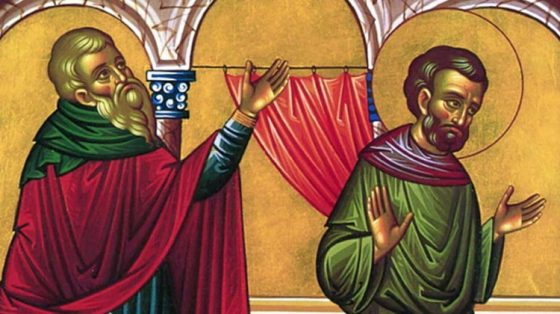
The Reformation began when the Augustinian monk and parish priest, Martin Luther nailed to the church door his 95 theses against the Roman Catholic practice of selling indulgences. The intention of the Reformation was to correct the perceived errors of the Roman Catholic Church.
The Reformation unleashed a tsunami of new doctrinal interpretations resulting in a slew of competing and contradictory denominations, and yet somehow they see each other part of one church.
The general spirit of the Reformation was divorce from the practices of the Roman Catholic Church that were not expressed explicitly in the Bible.
Sola scriptura is one of the five solas considered by many be the theological pillars of the Protestant Reformation. Sola Scriptura is Latin for “by scriptures alone.” The Bible alone is the source of all Christian doctrine and practice. Traditions not expressed in the Bible cannot be practiced. Luther said, “A simple layman armed with Scripture is greater than the mightiest Pope without it”. According to this new tradition (liturgical worship, apostolic authority, etc.) not expressed in the Bible must be abolished. With this new train of thought, the Church no longer had authority and suddenly the Bible became the sole authority.
Under this new doctrine then what happens is man is the sole authority to interpret the Word of God. Ironically the Bible does not give man this authority. This new tradition is not really biblical. It cannot be found in the Bible, thus it violates its own principle. Biblically, the Church does have authority, Paul calls the house of God, which is the Church of the living God the pillar and ground of truth. (cf. 1Tim 3:15)
None of the writings of the Early Church support the notion of Sola Scriptura. The Early Church functioned for at least thirty years before the first book of the New Testament was even penned and for over 300 years the Church did not define what books were canonically the New Testament.
Contrary to the doctrine of Sola Scriptura, Bible-Only Christians embrace many traditions that are not in the Bible, most significantly Trinitarian theology. Most are Trinitarian, but the doctrine is not in the Bible. It arises from the teaching of the Early Church. Another example is worship. There are some descriptions of worship in the Bible, but there is no defined order of worship. Worshiping on Sunday is not in the Bible either, but most Christians out of extra-bibilical tradition worship on Sunday. It is important to realize the Bible was never intended to be a systematic theological treatise.
For the Orthodox, the Bible is our most important Tradition. Nothing in the Church can contradict the Bible. It is a book written by the Church, within the Church and for the Church and can only be properly understood within the confines of the life of the Church. To read it correctly requires the light of the faith, tradition, and unbroken apostolic succession of the early church.
For a deeper understanding of Orthodox perspective on the doctrine of Sola Scriptura please read Sola Scriptura by Dn. John Whiteford.
32887 hours ago

“Not as the world gives, do I give unto you” (John 14:27). But does this promise of our Lord apply not only to His peace, but to other blessings as well. Could it be, for example, that the self-confidence of a Christian needs to be very different ...

